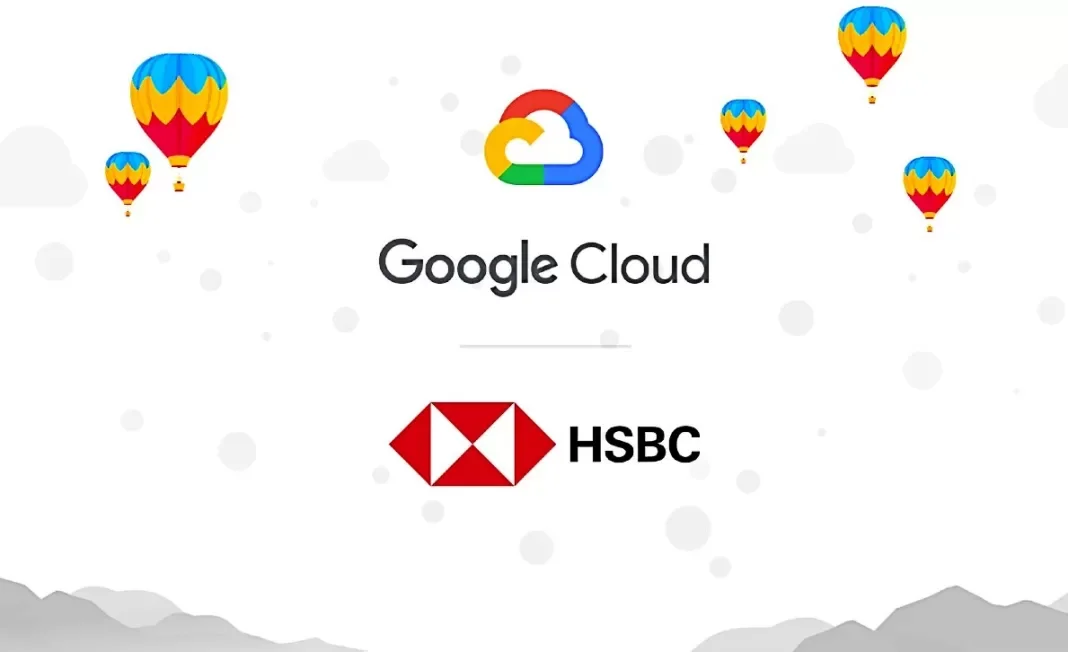HSBC has forged a partnership with Google Cloud to provide financial support to companies dedicated to advancing climate mitigation efforts through technology solutions. This collaboration aims to bolster firms selected by the U.S. tech giant for its Google Cloud Ready-Sustainability (GCR-Sustainability) program.
The GCR-Sustainability initiative is designed to cater to the needs of customers in their environmental, social, and governance (ESG) journeys. It aims to assist companies in achieving various objectives, including reducing carbon emissions, enhancing sustainability throughout supply chains. The program also facilitates the processing of ESG data to gauge performance and identify climate-related risks.
HSBC and Google Collab Fuels Climate Solutions
Through the partnership, Google Cloud intends to expand its roster of partnerships within the GCR-Sustainability program. Currently, it features notable companies such as Airbus, Planet Labs, and Watershed, among others, within the next two years.
Furthermore, the collaboration will enable HSBC to allocate funding to selected companies, aligning with its commitment to invest $1 billion in early-stage climate technology ventures. These cover various sectors, including electric vehicles, battery storage, and sustainable food systems, by 2030.
Companies selected to participate in the GCR-Sustainability program undergo a rigorous validation process conducted by Google. The tech giant assesses the quality of the technology under development and its alignment with climate science and expertise.
Google also evaluates the technology’s market traction among customers as part of this process.
Members of the GCR-Sustainability program will gain access to venture debt financing options provided by HSBC’s climate tech finance team. The inaugural financing package under this agreement will be directed to LevelTen Energy, a platform focused on clean energy transactions and data, enabling clients to access renewable transaction infrastructure.
Natalie Blyth, HSBC’s global head of commercial banking sustainability, emphasized the importance of partnerships and innovative financing solutions. This is even more particularly crucial amidst a period of slowing down investment in climate tech startups last year.
In Q3 2023, climate tech startups specializing in carbon and emissions technology secured an impressive $7.6 billion in venture capital (VC) funding. This figure exceeded the sector’s previous record by $1.8 billion, defying the downward trend seen in other sectors.

“By combining financing support, cloud technologies and connectivity to partners across our combined footprints, we will help climate tech vendors accelerate their growth and develop the solutions we urgently need at scale.”
Empowering Climate Innovators
Justin Keeble, Google Cloud’s managing director for global sustainability, underscored the necessity for technology providers to bring impactful solutions for climate action. Keeble noted that access to finance is crucial for many of these companies, making the partnership with HSBC particularly valuable.
HSBC’s initiative in London builds upon its goal of facilitating $750 billion to $1 trillion of investments and sustainable financing by 2030. Britain’s largest bank unveiled its first net zero transition plan the previous month. The bank disclosed providing $210.7 billion to support environmental and social activities since setting the target in 2020.
The net zero transition plan also outlines HSBC’s intention to gradually decrease financing provided to carbon-intensive sectors, aligning with efforts to limit global temperature rise to below 1.5°C.
The bank has established 2030 targets for industries such as oil and gas, power and utilities, transport, and heavy industry. Thermal coal mining and iron and steel manufacturing are part of the targeted industries. HSBC will disclose its progress towards these targets annually.
Advancing Climate Tech Solutions
The collaboration with Google’s cloud computing division comes on the heels of HSBC’s acquisition of the UK branch of Silicon Valley Bank (SVB) last year, a move facilitated by the UK government to prevent ripple effects in the startup ecosystem.
The availability and impact of venture debt remain significant concerns for policymakers. While SVB played a major role in this space, traditional lenders have been cautious about entering, citing capital risks.
HSBC spokesperson Richards noted that the bank has exceeded internal targets on this front and expressed optimism that the partnership and the launch of HSBC Innovation Banking would expedite progress toward the more ambitious goal of transitioning 1.3 million clients to net zero by 2050.
According to research from the International Energy Agency, almost 50% of the emissions reductions needed to achieve net zero by 2050 will rely on currently unscaled technologies.
- RELATED: IEA’s 2023 Net Zero Roadmap
HSBC intends to facilitate connections between its existing clients and climate tech firms to facilitate the transition over time.
Keeble emphasized the crucial role of technology and finance in driving climate action, expressing HSBC’s alignment with Google’s perspective that sustainability challenges are fundamentally data challenges.
The collaboration between HSBC and Google Cloud signifies a significant step towards fostering climate tech innovation. Through financing and technological support, they aim to accelerate the development and adoption of impactful solutions, crucial for combating climate change and achieving sustainability goals.

